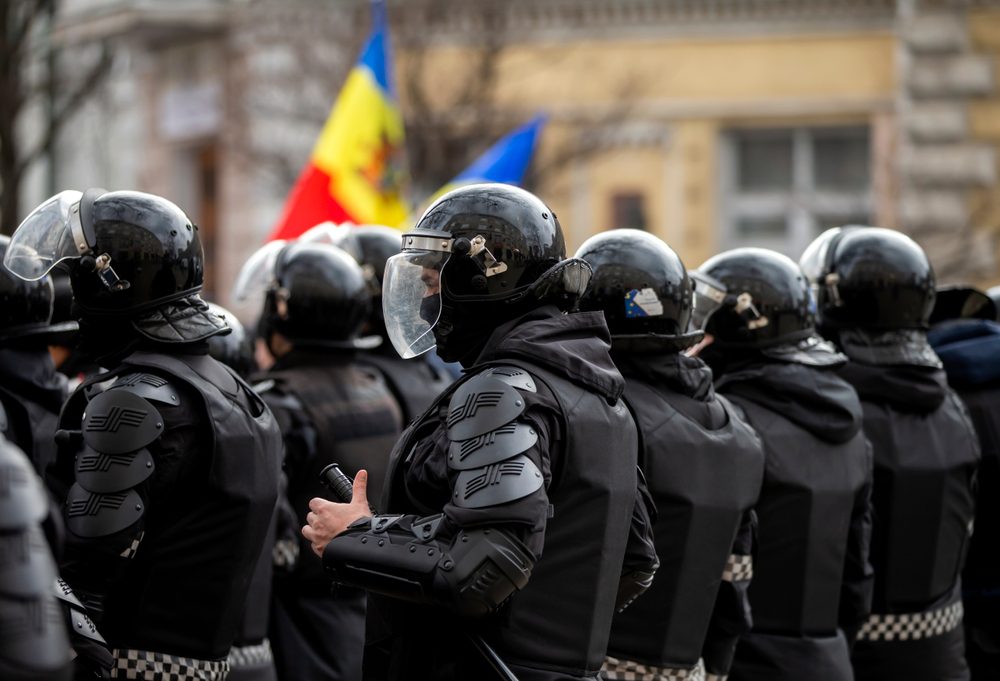
A group of paid actors with possible ties to Russian intelligence was arrested ahead of Sunday’s (March 12th) anti-government protest in Chișinău, for allegedly trying to organize an insurrection by stoking anti-Western, pro-Russian sentiments, Politico reported.
The arrests happened just days after the White House warned Moldova’s pro-EU government that the Kremlin was trying to “weaken the Moldovan government” by using the ongoing protests to eventually get a foothold in the small country’s parliament.
“Russian actors, some with current ties to Russian intelligence, are seeking to stage and use protests in Moldova as a basis to foment a manufactured insurrection against the Moldovan Government,” U.S. National Security Council spokesman John Kirby said on Friday, with the “goal of seeing a more Russian-friendly administration in the capital.” He added that Washington will continue to provide “robust support” to Moldova.
Two days later, Moldovan police did indeed uncover the plot, potentially involving as many as one hundred agents financed by Russia, each to receive up to $10,000 to participate in the protests. According to the police, authorities managed to foil the plot on Saturday thanks to an undercover agent infiltrating the group, leading to the arrest of seven people in total.
Protests against the the Current government in Moldova. The crowd shouted, "he Kremlin will save us"
— Major Bavovna (@VovaDolbaeb) March 2, 2023
Slight problem: Local news interviewed individuals at the protest, but they spoke only in Russian and said, "I'm sorry I don't speak your language… Moldovan language"
🧵 pic.twitter.com/uk348uHpYj
The authorities also released internal communication between the undercover agent and his Russian contact, presumably a member of Moscow’s intelligence community. The instructions detailed how the paid protesters should be divided into ten groups of 5-10 people, with one of them—designated as the “core”—prepared to operate front and center, directly clashing with the anti-riot police.
Those who are the core will be in the front, clash [with the police] and come up dry from the water. If they get [beaten], it’s extra money. If they’ve been taken in, that’s extra money too.
The main thing you need to understand is that there are top people who are ready to pay, but to negotiate, they need to make this move happen first. Money has been allocated for this move. We are now talking about the fact that, conditionally, the people who will stand behind these guys [the core] will also get $1,200.
Moldova has been the center of much discussion in the West lately, as the Eastern-European country, wedged between Romania and Ukraine, is feared to become either the next Kremlin puppet or the next scene of Russian aggression. Moscow already has a military presence in Moldova’s tiny breakaway region of Transnistria, which unilaterally declared its independence in the wake of the Soviet Union’s collapse.
As far as the West is concerned, the culprit behind Moldova’s increasingly louder anti-government protests is clear. Late last month, President Maia Sandu also claimed she uncovered Russian plans to overthrow the government, but the announcement appeared to have only emboldened the demonstrations.
In early February, Ukrainian intelligence agencies also warned that Moscow was planning to “destroy” Moldova from within, a claim that the Moldovan intelligence even confirmed, albeit without proof until yesterday’s arrests. Nonetheless, knowing the alleged plot well ahead did not save the Moldovan government from collapsing, which was announced on February 10th, citing “lack of domestic support.”
On Sunday, thousands gathered in the latest installment to protest the government and, in particular, the cost-of-living crisis. Riot police secured several key points in Chișinău, while roadblocks around the capital city were erected to prevent busloads of protesters from entering from outside. In the end, 54 people were detained for public order violation, but not as part of the Russian plot suppressed the day before.
